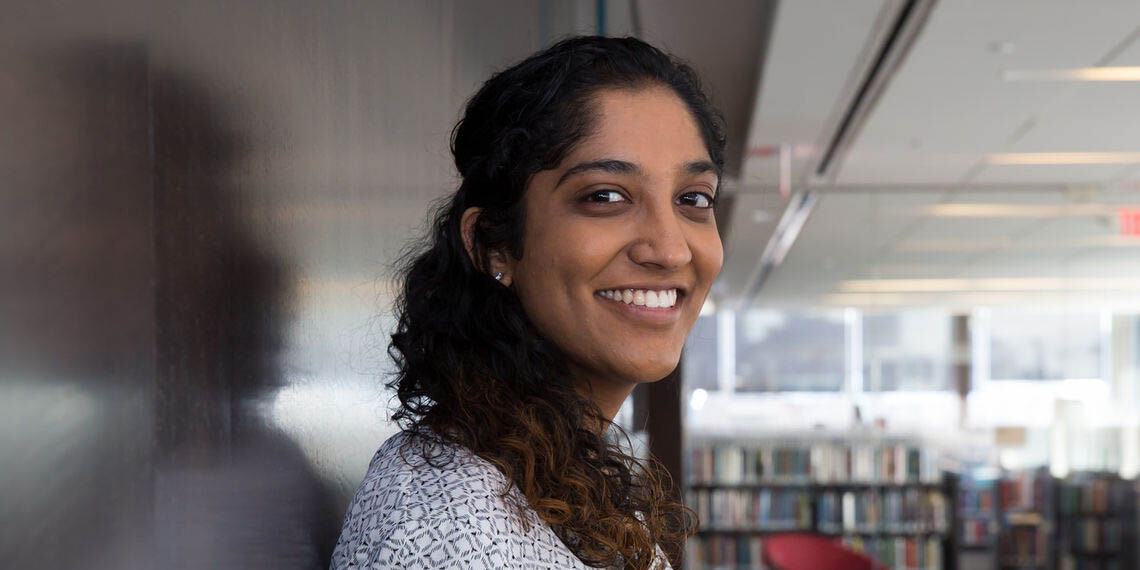Kriya Patel wants women to feel empowered when they’re released from prison.
Patel, one of three recipients of the 2016 President’s Engagement Prize, is spending the next year working with women who are about to be discharged from Philadelphia’s Riverside Correctional Facility. The goal behind her project, “Coming Home to Continued Care,” is to help these women obtain identification and health insurance — both of which the vast majority lack — in order to ease their reentry into society.
“At Riverside right now,” Patel explains, “there are 622 women. But within the past 12 months, 5,200 different women have been released. With a team of three people, we’ll hopefully be able to process 18 applications a day, which, within a year, would mean that we would be able to help 4,050 women receive Medicaid.”
The idea originated after Patel took as course taught by Kathleen Brown, Practice Associate Professor in Penn’s School of Nursing, called “Women and Incarceration.” The students spent the semester learning about the city’s prison system and visiting Riverside one day a week to provide interactive health workshops to prisoners.
There’s often this misconception that people in prison are bad people who had their chance. In reality, it’s more often circumstances and lack of opportunity and intervention.
Kriya Patel
“I’ve been doing this for many years,” says Brown, who will mentor Patel for the project’s duration. “It’s a population that I have compassion for; many of them are forgotten people. There are too many barriers for these women to create a new crime-free life.”
Patel is trying to ease the burdens on these women.
“There’s often this misconception that people in prison are bad people who had their chance,” she says. “In reality, it’s more often circumstances and lack of opportunity and intervention.”
The idea behind Coming Home to Continued Care is relatively straightforward: Provide the women with reliable, feasible healthcare options, and improvement to other aspects of their lives will follow.
“You can’t start talking about jobs and developing a new life if you’re not physically and mentally healthy,” Brown says. “You have to be those things first. That’s pretty clear.”
Obtaining health insurance, Patel says, will help women who are about to be released continue their critical access to stabilizing medication. Two-thirds of Riverside’s population is currently on medication for behavioral health issues; once released, however, prisoners typically receive just a five-day supply of medication.
“This means that after five extremely short days, in addition to the challenges of finding a job and finding housing, they are now off of their much-needed medication,” Patel says. “Getting them connected to healthcare from the moment they are released is vital.”
Though Patel hasn’t yet solidified her long-term career plans, she is certain that she wants to continue working with the population that she will be getting to know over the next year. The President’s Engagement Prize, she says, has moved her one step further in that direction.
“I really wanted this for these women and, when I found out that I received the President’s Engagement Prize, I was just so excited,” Patel says. “I want this so badly for them.”


